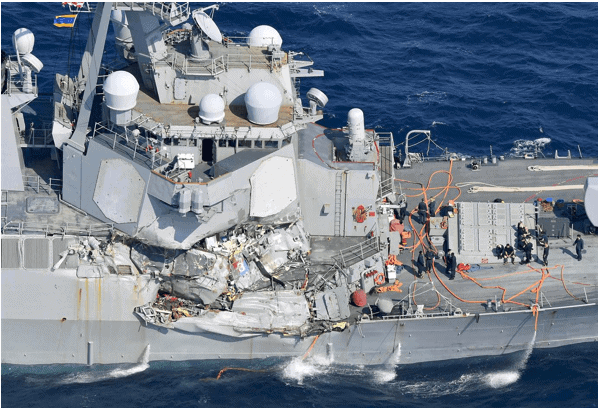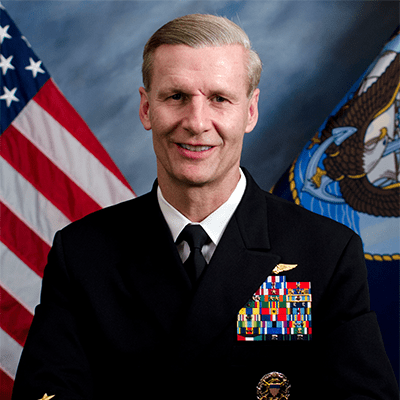Weak Signals or Deaf Leaders?

What is a Weak Signal?
Weak Signals … What are they?
There are many articles that define the term weak signals. Here are two…
EHS Today
Terry Mathis – Safety & Performance Excellence: Weak Signals…
“… being sensitive to subtle and less obvious aspects of safety.”
SITRA
Mikko Dufva – What is a weak signal?
A weak signal is an indicator of a potentially emerging issue,
that may become significant in the future.
Often, being able to detect and learn from weak signals is included as an important function of High-Reliability Organizations (HRO).
Are Weak Signals “Weak” or Are Senior Leaders Deaf?
First, let me state that my experience with High-Reliability Organizations is in the FIRST High-Reliability Organization – Admiral Rickover’s Nuclear Navy. What makes it a High-Reliability Organization? Read this from a previous article about the topic:
Rickover’s Nuclear Navy was the original high-reliability organization. In my experience, there isn’t anything that comes close. I’ve seen research that described carrier flight deck operations as a high-reliability organization. But from the accidents and injuries I’ve seen or heard about, I just don’t think they meet the standard.
That brings up a question. What is the standard?
I think the answer is ZERO.
Rickover’s Nuclear Navy was (and still is even after he is gone for almost forty years) an organization that achieves the amazing record of ZERO reactor safety-related accidents. There were no fatalities, no major releases of radioactive material, and no core-melt accidents. And this record was set during Rickover’s leadership when the Navy was running hundreds of reactors at sea every year. Today that’s a record of sixty years of continuous operation of many nuclear reactors without a major reactor-related accident.
If you are in the process industry, think of this as all the US refineries having no fires or explosions or significant environmental releases for 60 years.
For carrier aviation to qualify as a high-reliability organization, they would have to have zero flight deck-related fatalities, explosions, or aviation-related crashes on all the US carriers for years. As far as I know, they don’t achieve this record for a single year (usually not a single deployment).
Therefore, if you are going to learn from a high-reliability organization, make sure it is a real high-reliability organization.
From The Reality of High-Reliability Organizations by Mark Paradies.
Thus, I’ve been in an organization that does an exceptional job at hearing weak signals. I know how it works firsthand. And I know that to those in the Nuclear Navy, the signals were NOT weak. They were heard all the way to the TOP of the organization by Admiral Rickover.
From the article mentioned previously, hearing weak signals is a simple matter:
“If you know what makes your systems highly reliable,
then you make sure that these important factors are
looked after, maintained, and nurtured.”
To learn more about Admiral Rickover’s Nuclear Navy, read this set of articles:
Thus, weak signals are only weak IF you either:
- aren’t listening or,
- you don’t understand the risks, or
- you don’t want to hear what the signals are saying.
And that’s exactly what happens in many organizations. Senior leadership doesn’t want to hear the message – they just want results.
Examples of “Weak Signals” that Were Not Weak

I’ve seen several examples used of companies or organizations failing to detect weak signals. These include:
- NASA (either shuttle disaster)
- BP – Texas City Refinery Explosion
- BP – Deepwater Horizon
- US Navy – USS Fitzgerald & USS John S McCain collisions
All of these are examples of companies/organizations who didn’t want to hear clear, loud “Weak Signals” and therefore, experienced highly-publicized fatal accidents that could have been prevented. In each case, the signals were forwarded up the chain of command and senior leadership rejected or just didn’t respond to the signals they should have acted upon.
Hear The Story of Failing to Hear “Weak Signals”

Admiral Joseph Aucoin (retired), previously Commander of the Seventh Fleet, will share his personal experience of having clear feedback about a potentially high-risk situation not being heard in his Keynote Talk at the 2022 Global TapRooT® Summit. The title of his talk is “Hearing Warnings: The need for senior leadership to listen and respond to signals that indicate unacceptable risk.“
This goes way beyond research papers on weak signals and High-Reliability Organizations. You will hear a personal story of how feedback can be ignored by smart people who don’t want to or can’t respond appropriately when warned of a high-risk situation. If you are interested in the phenomenon or weak signals or High-Reliability Organizations, you should plan to be at Admiral Aucoin’s Keynote Presentation at the Summit.



